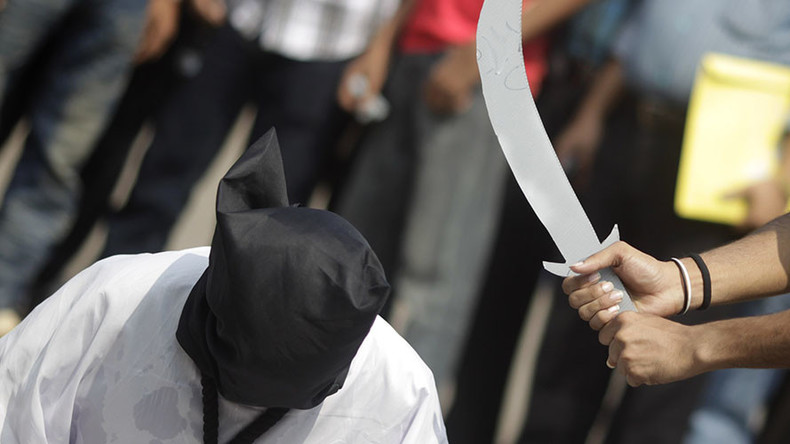Hussein Abo al-Kheir, a father of eight who made a living as a driver for a Saudi Arabian family, was arrested for allegedly carrying drugs in 2014, but had long maintained his innocence, saying he had been tortured into signing the confession.
In late November, when al-Kheir’s execution appeared imminent, the UN High Commissioner for Human Rights joined a group of British politicians, including Middle East Minister Lord Ahmad, who called on the kingdom to halt the killing.
At the time, Foreign Minister David Rutley told MPs in response to an urgent question that al-Kheir was “clearly” tortured, that his situation was “abhorrent” and the issue was raised “at the highest level”.
Four days later, Rutley asked for the parliamentary record to be struck, saying he had spoken in error.
On Sunday, al-Kheir was the latest of 11 people to be executed over the past eight days, raising concerns among those documenting death row cases that more were coming.
Since 2010, Saudi Arabia has executed nearly three times as many foreign nationals for drug-related offences which do not meet the “most serious crimes” threshold under international law, Reprieve and the European Saudi Organisation for Human Rights said in a report earlier this year.
Rights groups and MPs have expressed concerns over the inability of the UN and UK to stop al-Kheir’s execution, with some criticising Foreign Secretary James Cleverly for failing to act publicly.
“The UK government knew Hussein Abo al-Kheir was at imminent risk but the foreign secretary failed to publicly call for his execution to be halted, despite his predecessors taking this kind of action in the past,” UK MP David Davis told Middle East Eye.
“The UK must signal it will no longer turn a blind eye to executions like these, and speak out strongly on behalf of others who remain at risk, including child defendants like Abdullah al-Howaiti,” he added.
Labour MP Chris Bryant told Middle East Eye: “This is a depressing and upsetting moment. It seems the UK is far too reluctant to speak out on human rights issues in the Gulf states.”
“I hope the UK will condemn this execution, but I fear their reluctance to say anything previously gave the impression that the UK doesn’t care,” Bryant continued.
A Foreign Office spokesperson told MEE, “The UK government opposes the use of the death penalty in all circumstances as a matter of principle”, adding, “We regularly raise the death penalty, including the case of Mr Al-Kheir, with the Saudi authorities at ministerial level, including as recently as 11 March when FCDO Minister for the Middle East Lord Ahmad raised his case with ministers.”
Al-Kheir was executed exactly a year after Saudi Arabia killed 81 men in one day. The following week, then-Prime Minister Boris Johnson met with Crown Prince Mohammed bin Salman in a visit widely criticised by rights groups. Three further men were executed during the trip.
“Rather than condemn the crown prince, world leaders queued up to shake his blood-stained hands,” Maya Foa, director of Reprieve, said of the mass execution, adding, “Today’s atrocity and others like it is the inevitable result. When partners signal that the Saudi regime can kill without consequences, you can be sure it will.”
